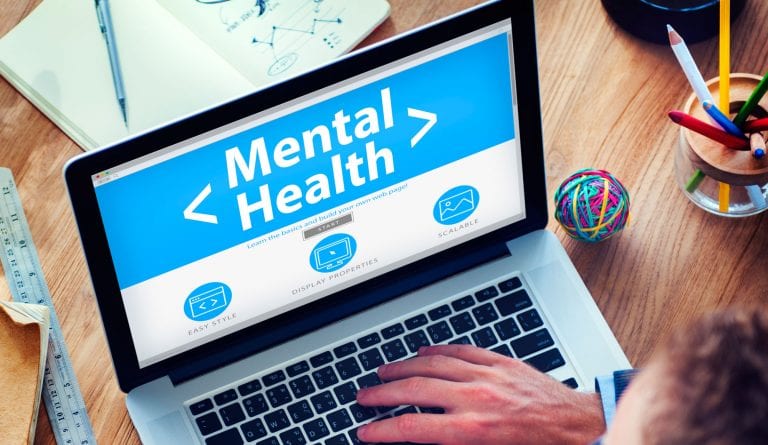
As a college student, balancing study time with self-care can feel impossible when deadlines stack up and responsibilities pull you in different directions. It’s tempting to think that pushing through exhaustion will lead to better results, but that kind of pressure makes it harder to focus and retain information. The more you sacrifice rest, the harder it becomes to stay motivated.
Taking care of yourself doesn’t mean falling behind. Giving your mind and body the attention they need helps you study smarter and get more done in less time. When you find the right rhythm between productivity and well-being, everything starts to feel a little easier.
The Importance of Structured Study Time
Trying to study without a plan can feel like running in circles. You sit down with good intentions, but distractions creep in, and suddenly hours have passed with little progress. A clear schedule takes the guesswork out of studying, making it easier to stay on track without feeling overwhelmed.
Short, focused sessions work better than long, exhausting study marathons. Studying for hours without a break only leads to burnout. The Pomodoro technique can help, wherein you’ll study for 25 minutes and take a quick breather to keep your mind fresh. The key is finding a rhythm that helps you absorb information without draining your energy.
A structured study plan goes beyond just setting aside time—it also means using the right tools. For example, if you’re taking an exam to become a Certified Phlebotomy Technician, you can utilize online practice exams to get familiar with the types of questions and time limits. Try a free phlebotomy practice exam for reinforcing key concepts, identifying weak areas, and building confidence before test day. Incorporating these resources into a study routine ensures steady progress and reduces stress.
Prioritizing Self-Care Without Feeling Guilty
When deadlines are looming, taking a break can feel like a waste of time. But the truth is, pushing through exhaustion doesn’t make you more productive—it just makes it harder to focus and retain what you’re studying. Self-care isn’t about slacking off. It’s what keeps your mind sharp so you can absorb the material. Investing in your wellness may manage exam anxiety and help you perform better when the test day comes.
Here are a few simple ways to take care of yourself without falling behind:
- Take Short Breaks: Step away for a few minutes to clear your head. A quick stretch, deep breathing, or even looking out the window can help.
- Prioritize Sleep: Staying up late cramming might seem like a good idea, but a rested brain remembers more.
- Move Your Body: Even a short walk can improve concentration and shake off stress.
- Stay Hydrated and Eat Well: Your brain works best when it has steady fuel.
Taking care of yourself makes studying easier, not harder.
Managing Stress During Academic Preparation
Studying comes with pressure, and stress can creep in before you even realize it. Feeling overwhelmed makes it harder to concentrate, leading to frustration and even more stress. Instead of ignoring it, finding ways to manage it can help you stay focused and motivated.
Here are a few ways to keep stress in check while studying:
- Recognize When You’re Feeling Tense: If you’re struggling to focus, feeling restless, or getting easily frustrated, it’s a sign to pause and reset.
- Try Deep Breathing or Meditation: A few slow, deep breaths can calm your mind and improve concentration.
- Break Big Tasks Into Smaller Steps: Tackling one section at a time makes studying feel more manageable.
- Get Some Fresh Air: A quick step outside can give your brain a much-needed reset.
Stress doesn’t have to take over. Small adjustments can make studying feel less overwhelming and more productive.
Smart Study Strategies to Reduce Overload
Studying for hours without a clear plan can leave you feeling drained without much to show for it. Instead of working harder, working smarter can help you absorb information more efficiently while avoiding burnout. A few simple adjustments can make studying feel less like a chore and more like progress.
Here are some ways to study effectively without overloading yourself:
- Use Active Learning Techniques: Reading notes over and over isn’t enough. Try summarizing information in your own words, teaching it to someone else, or using flashcards.
- Focus on Quality Over Quantity: Spending hours rereading isn’t as effective as shorter, focused study sessions with breaks in between.
- Join a Study Group: Discussing material with others can reinforce what you know and fill in gaps in your understanding.
- Prioritize the Toughest Topics First: Tackle the hardest material when your mind is freshest.
Finding the Right Balance for Your Goals
There’s no perfect formula for balancing study time and self-care. Everyone has different energy levels, learning styles, and responsibilities. The key is paying attention to what works best for you and making adjustments along the way. A routine that leaves you exhausted won’t be sustainable, and a schedule with too many distractions won’t get you where you want to be.
- Listen to Your Body: If you’re feeling mentally drained, pushing through won’t help. A short break can make a big difference.
- Be Flexible: Some days you’ll need more study time, and other days you’ll need more rest. That’s okay.
- Set Realistic Goals. Instead of overwhelming yourself, break tasks into manageable steps so you can make steady progress.
- Find a Routine that Fits Your Lifestyle. Some people focus better in the morning, while others do their best work at night. Work with your natural rhythm.
- Celebrate Small Wins. Finishing a chapter, acing a quiz, or sticking to your study schedule are all achievements worth recognizing.
Wrapping Up
Success in studying depends on more than just how many hours you put in. Pushing yourself too hard makes it harder to retain information, and skipping self-care only adds to the frustration. When you find the right balance, studying feels more manageable, and you stay motivated longer.
Small changes, like taking breaks, managing stress, and using smarter study techniques, can make a big difference. Taking care of yourself while keeping up with your studies allows you to stay focused and productive without feeling burned out. When both your learning and well-being get the attention they deserve, success follows naturally.
SEE ALSO: The College Athlete’s Journey: Balancing Academics and Sports















-225x300.jpg)